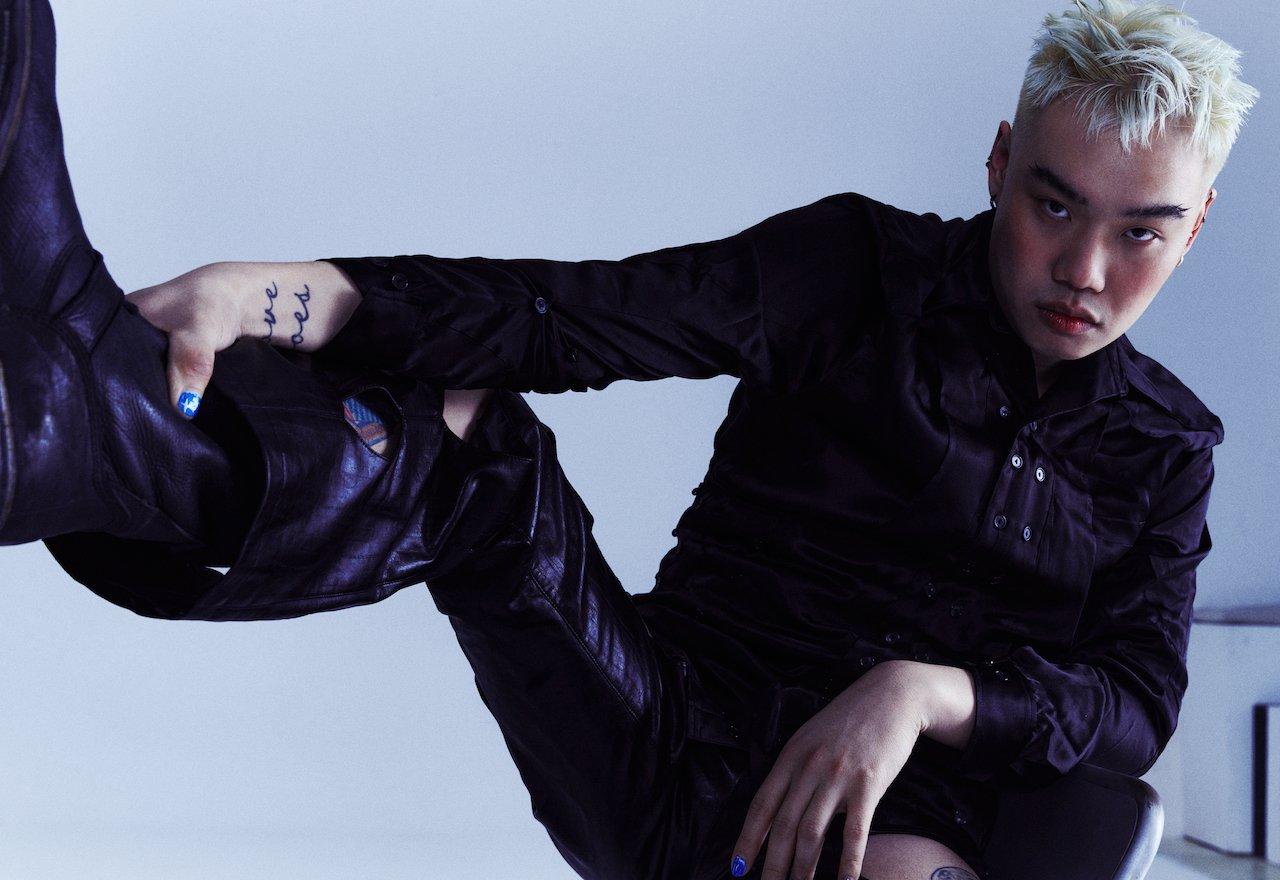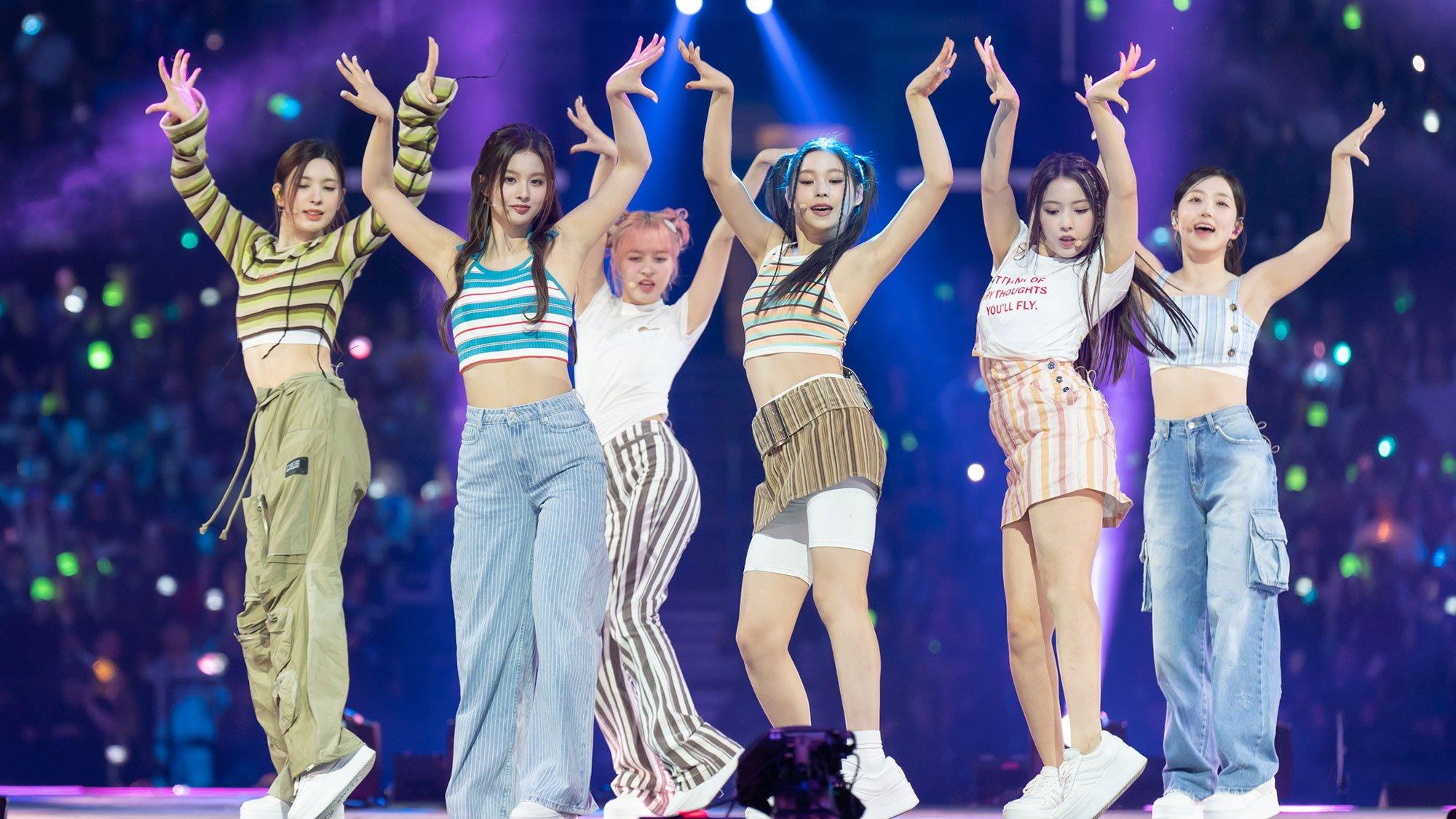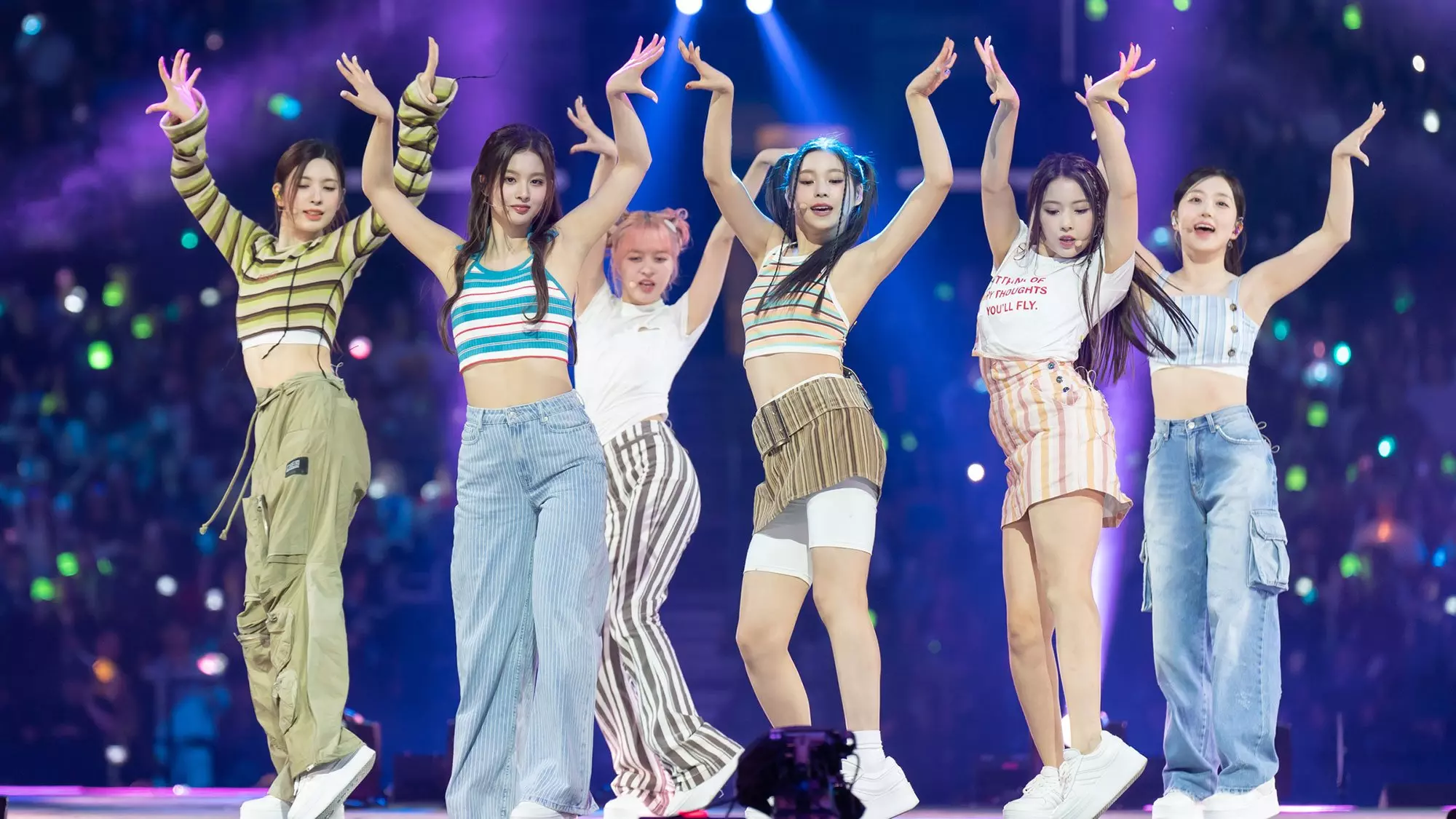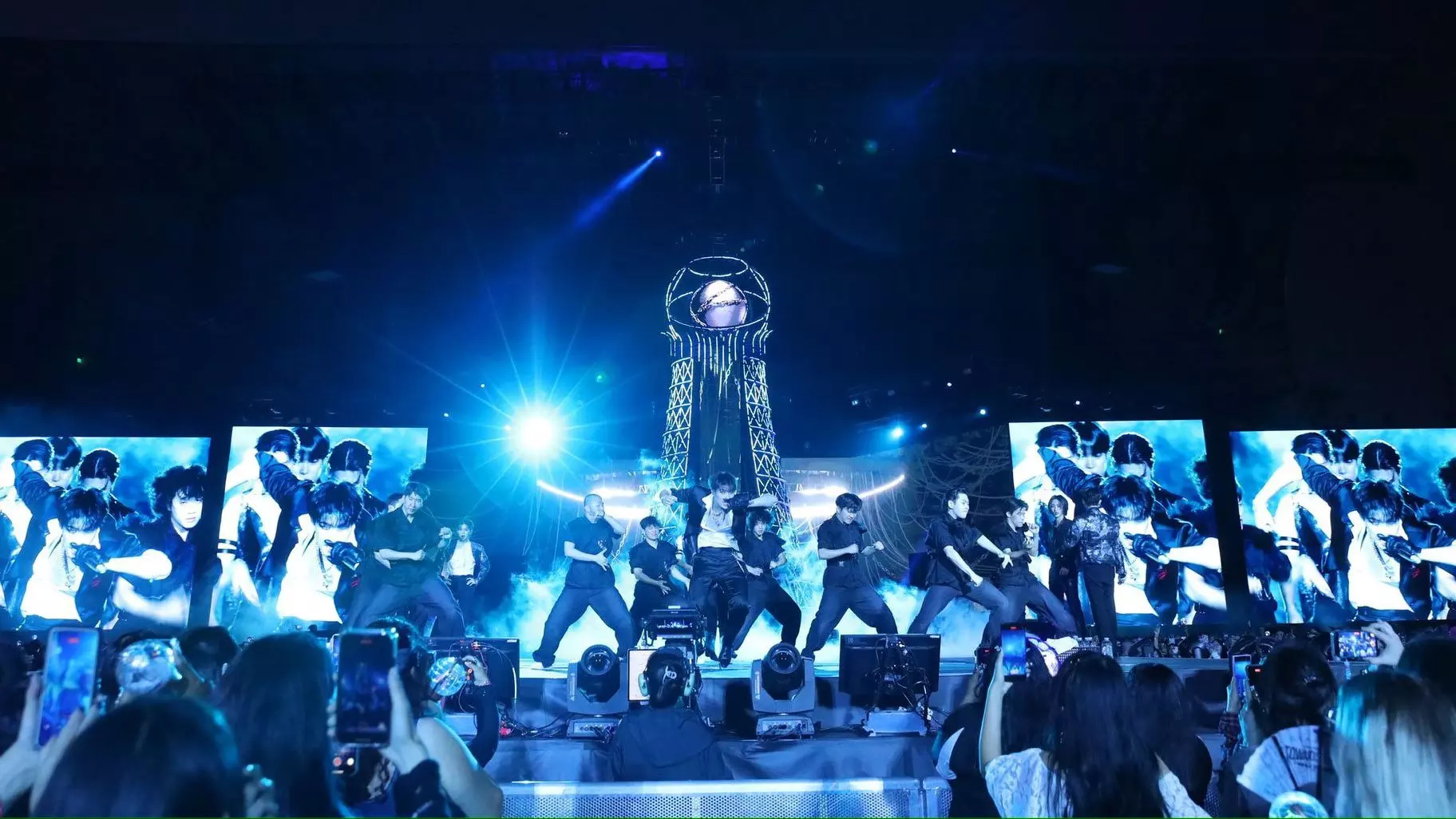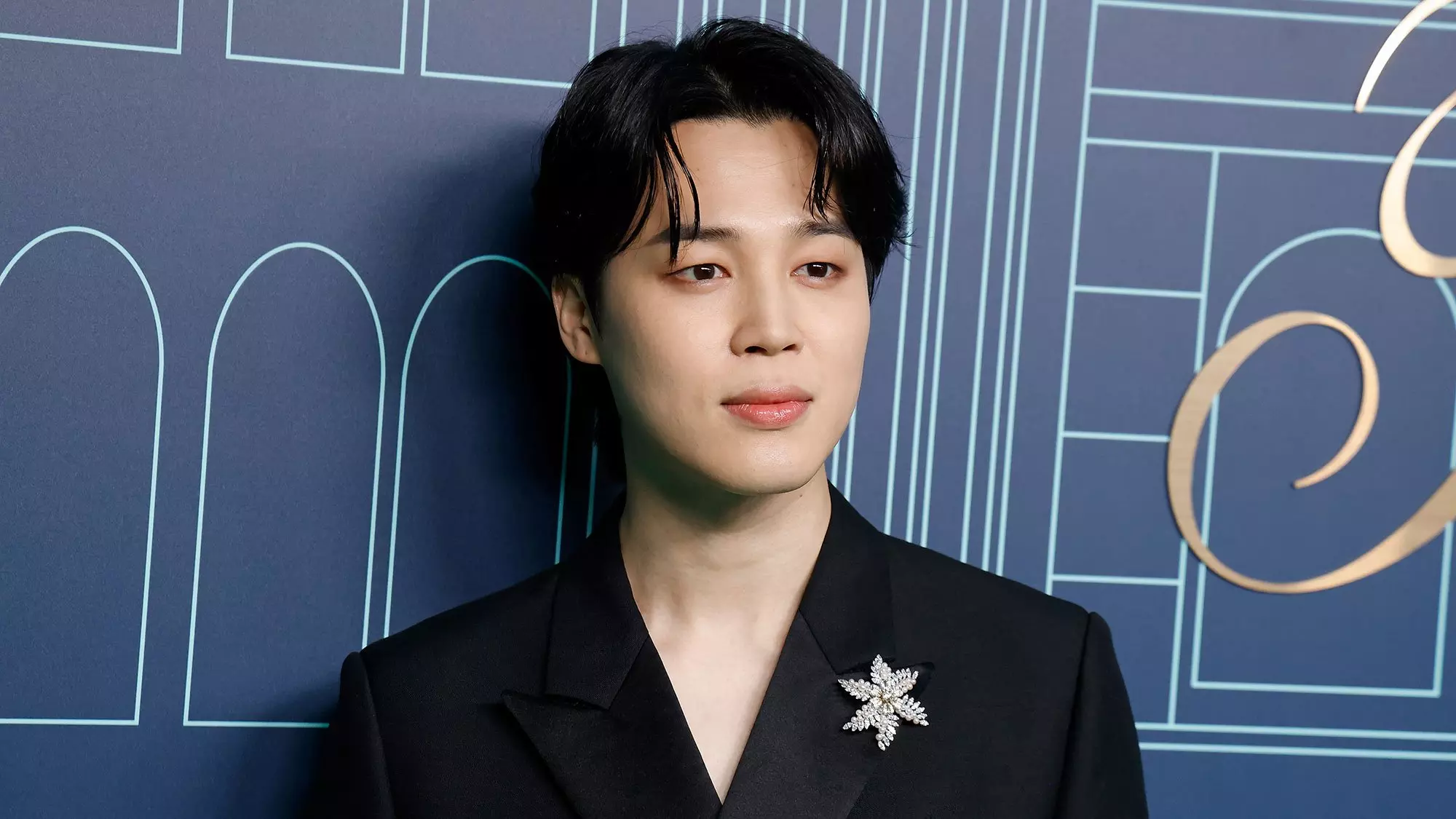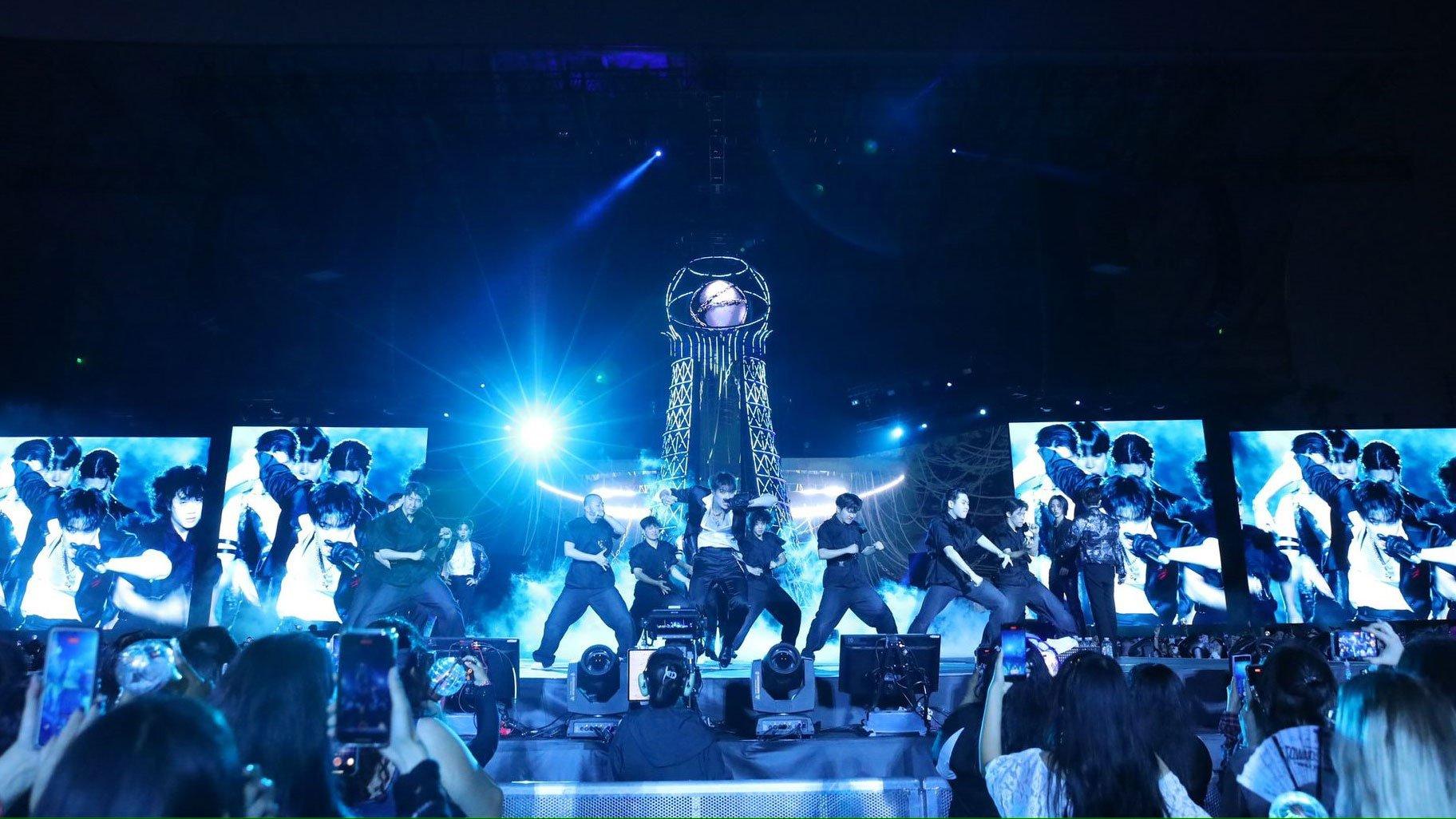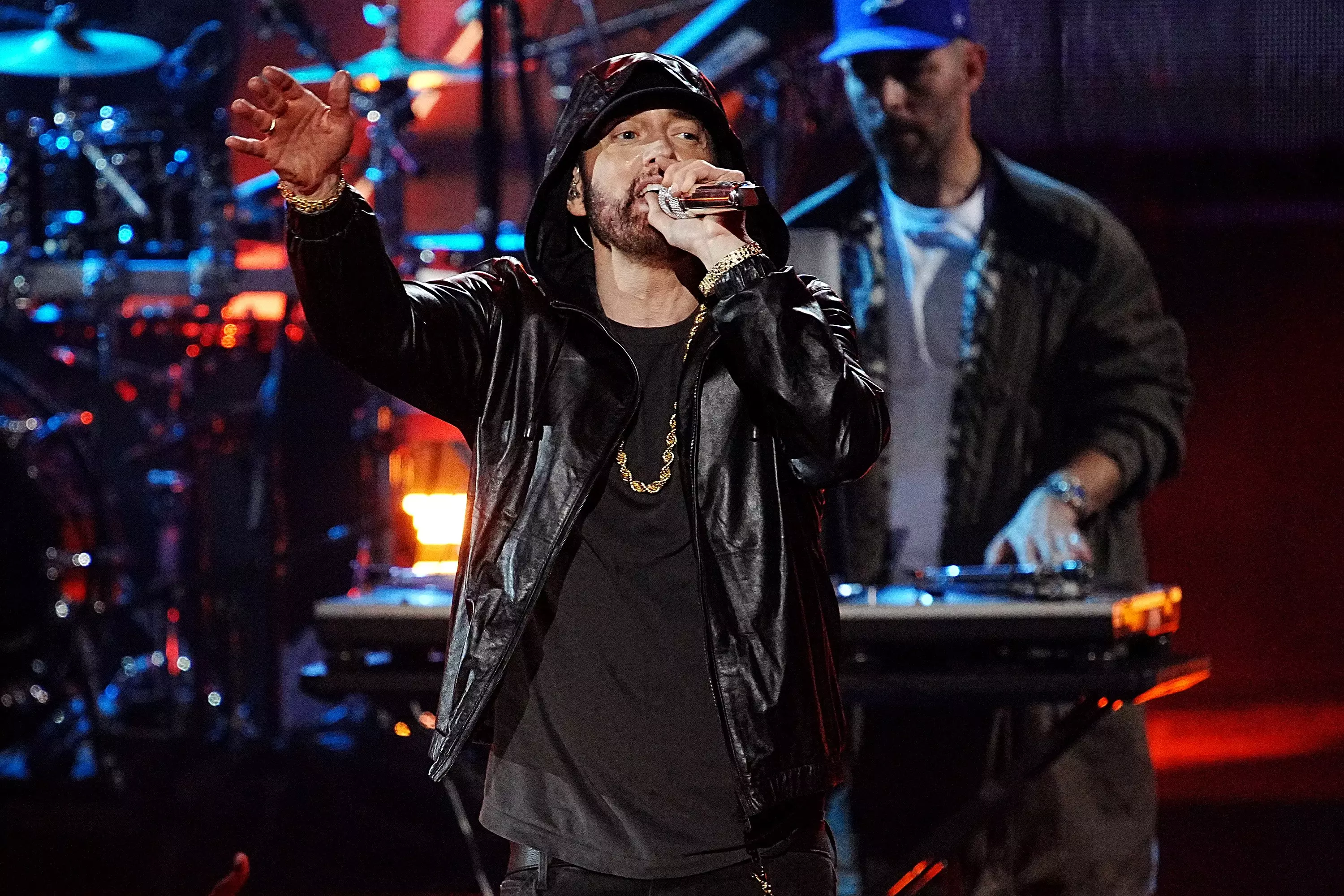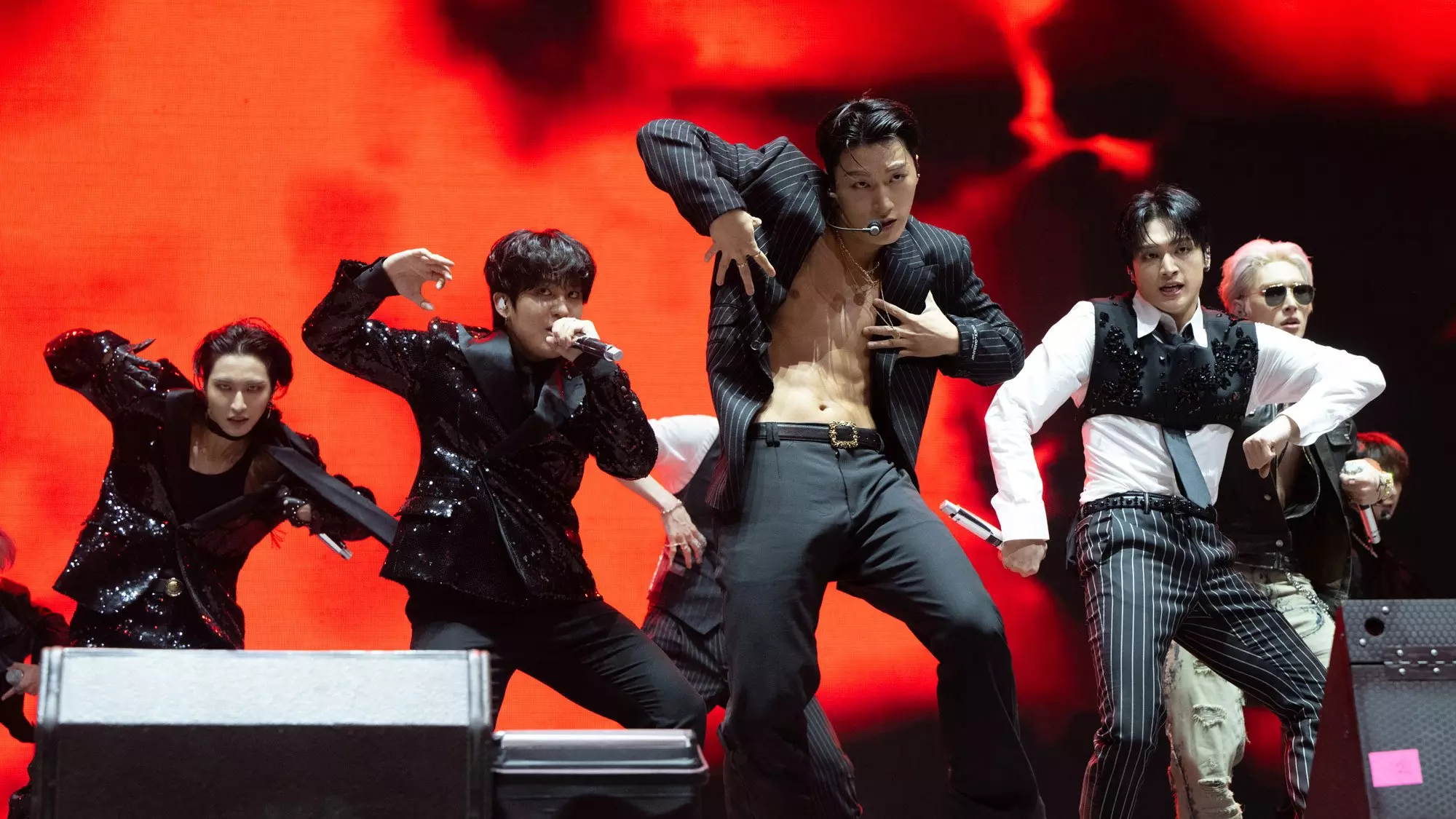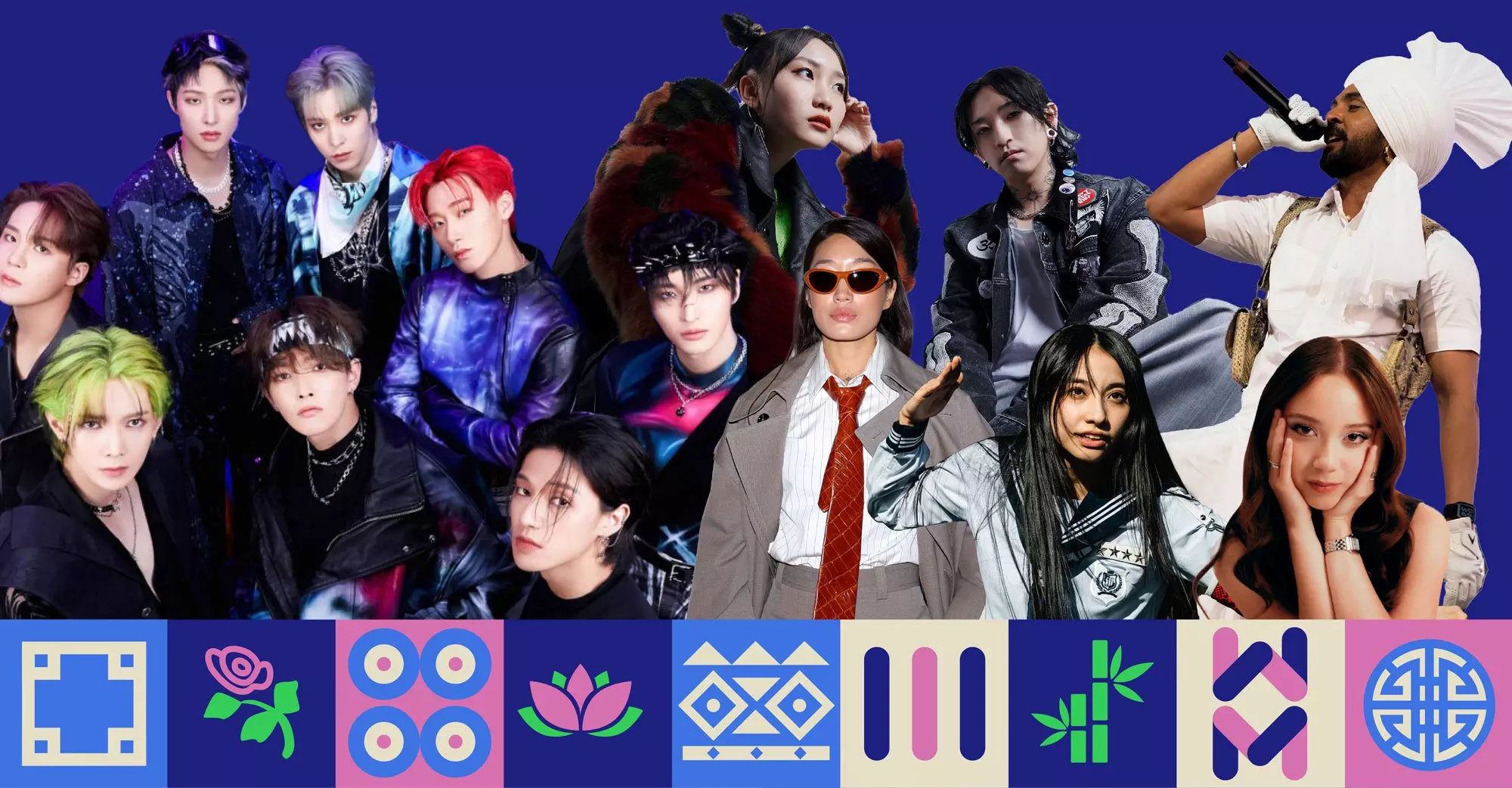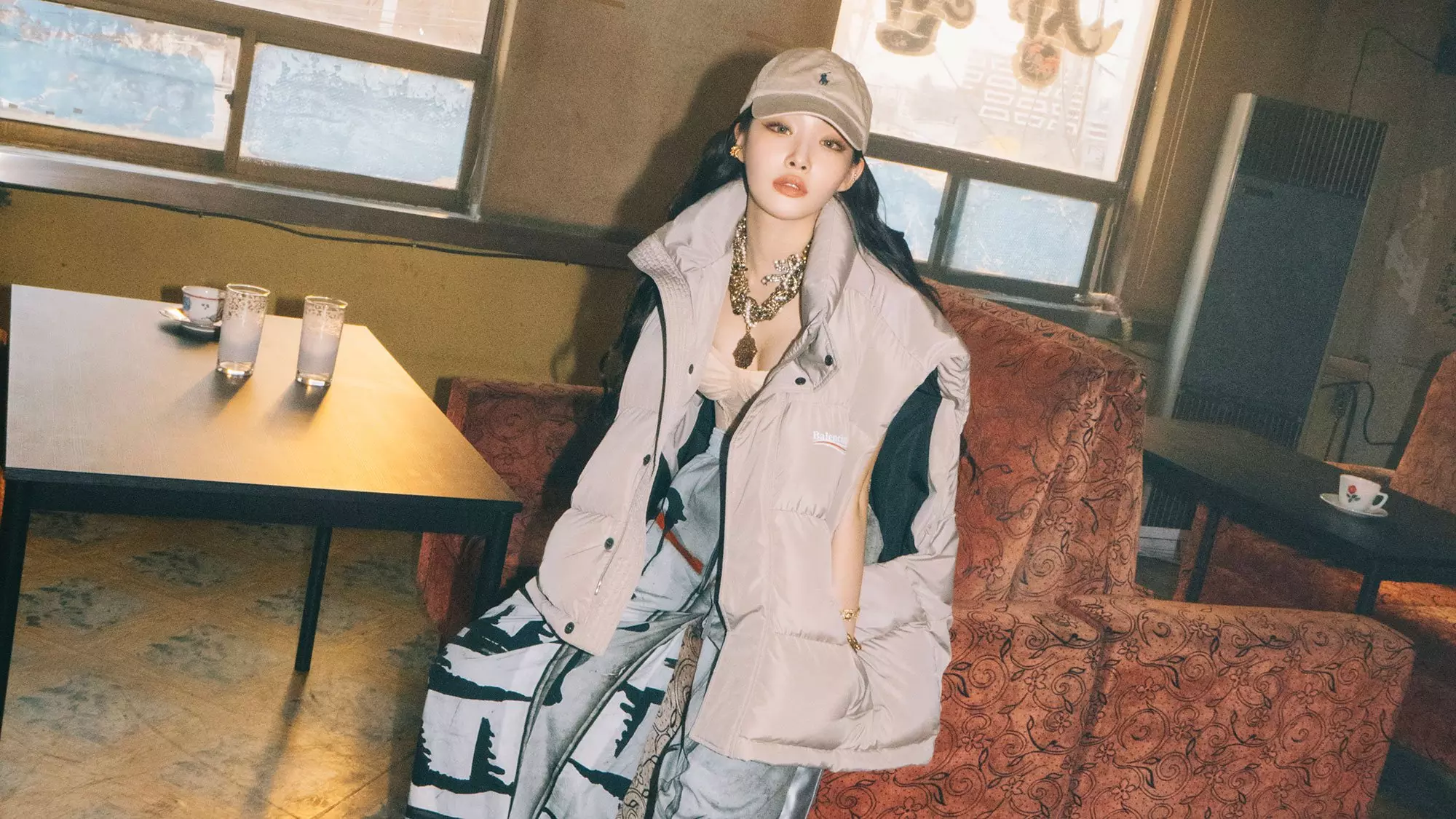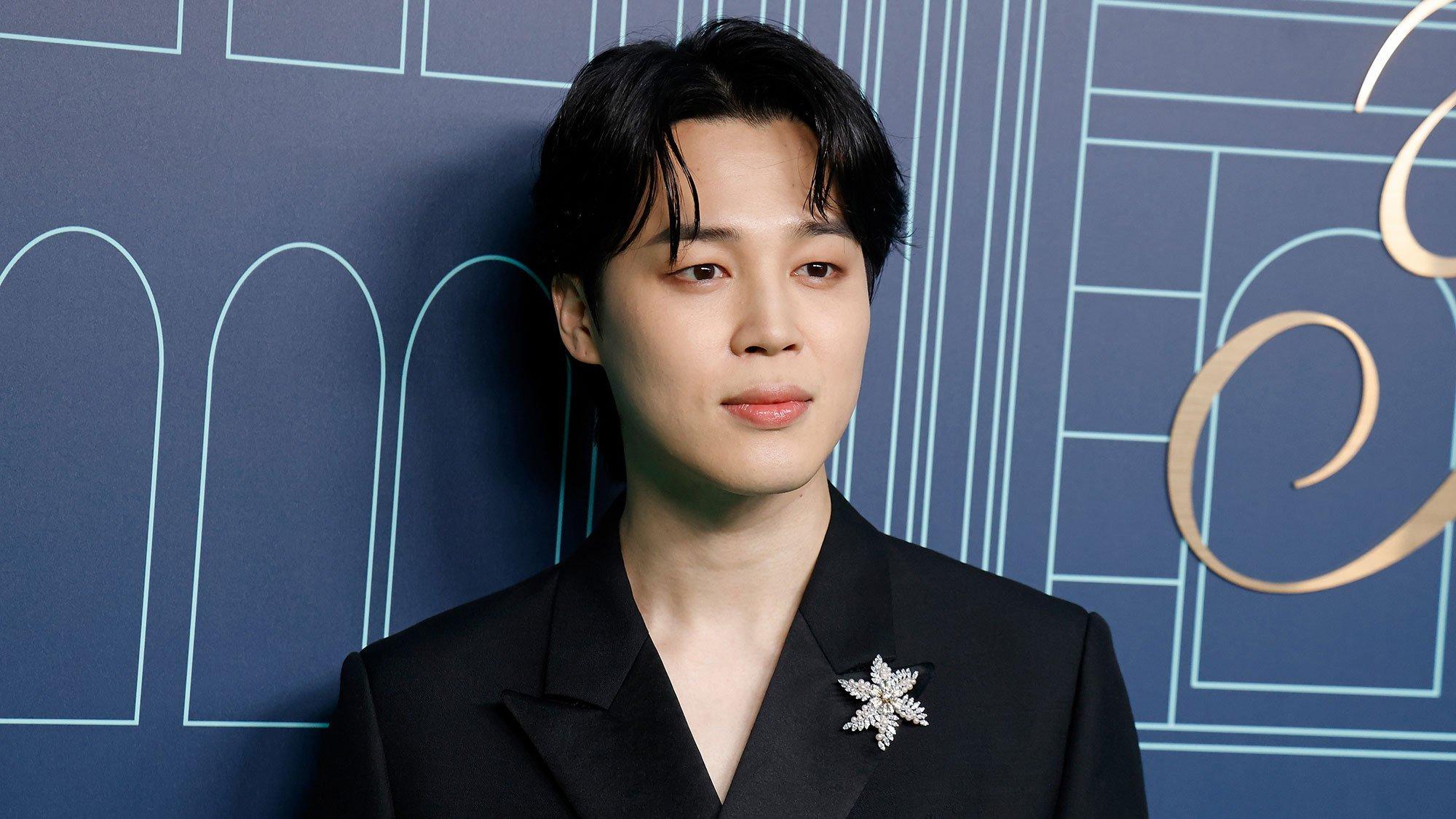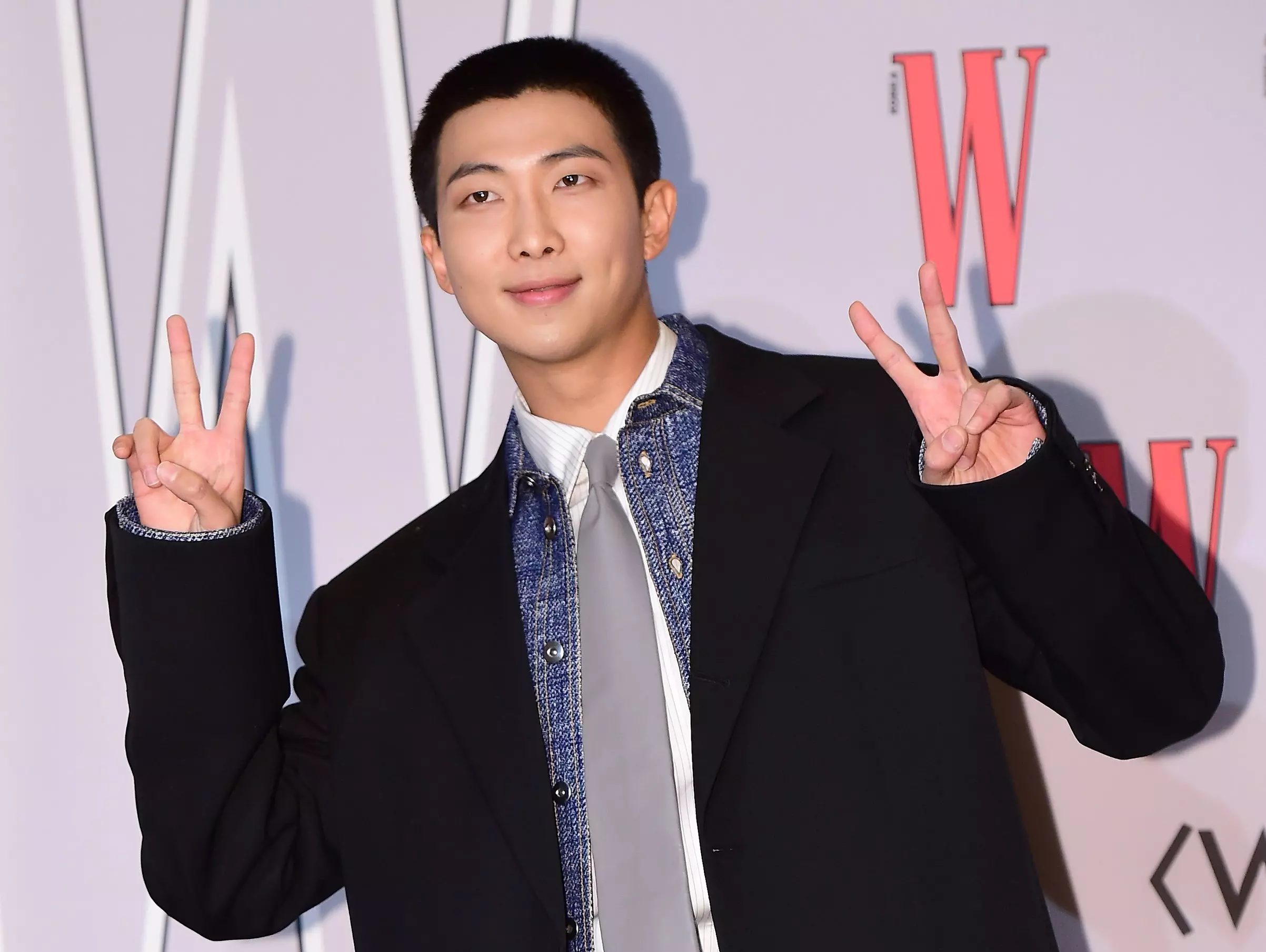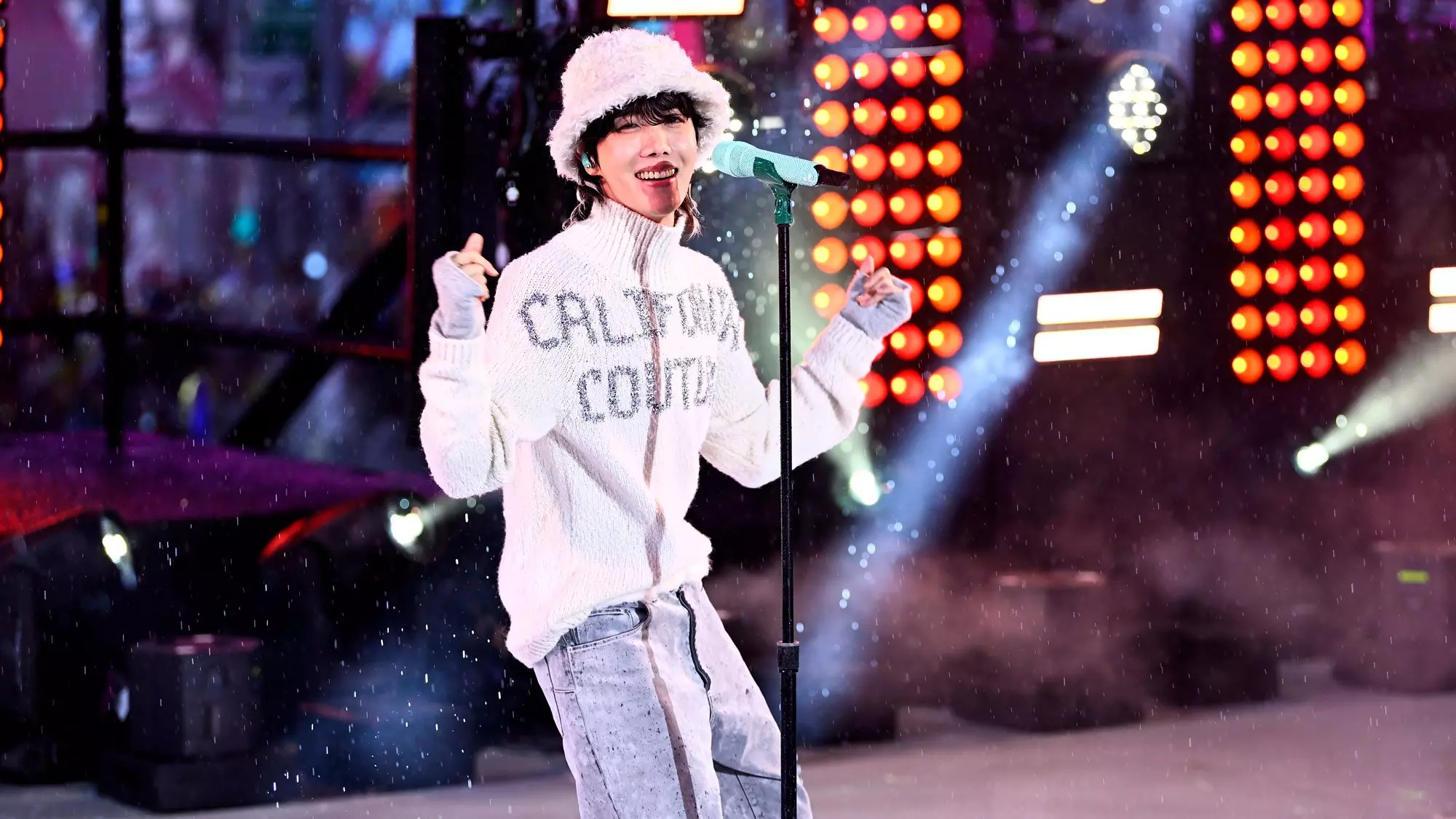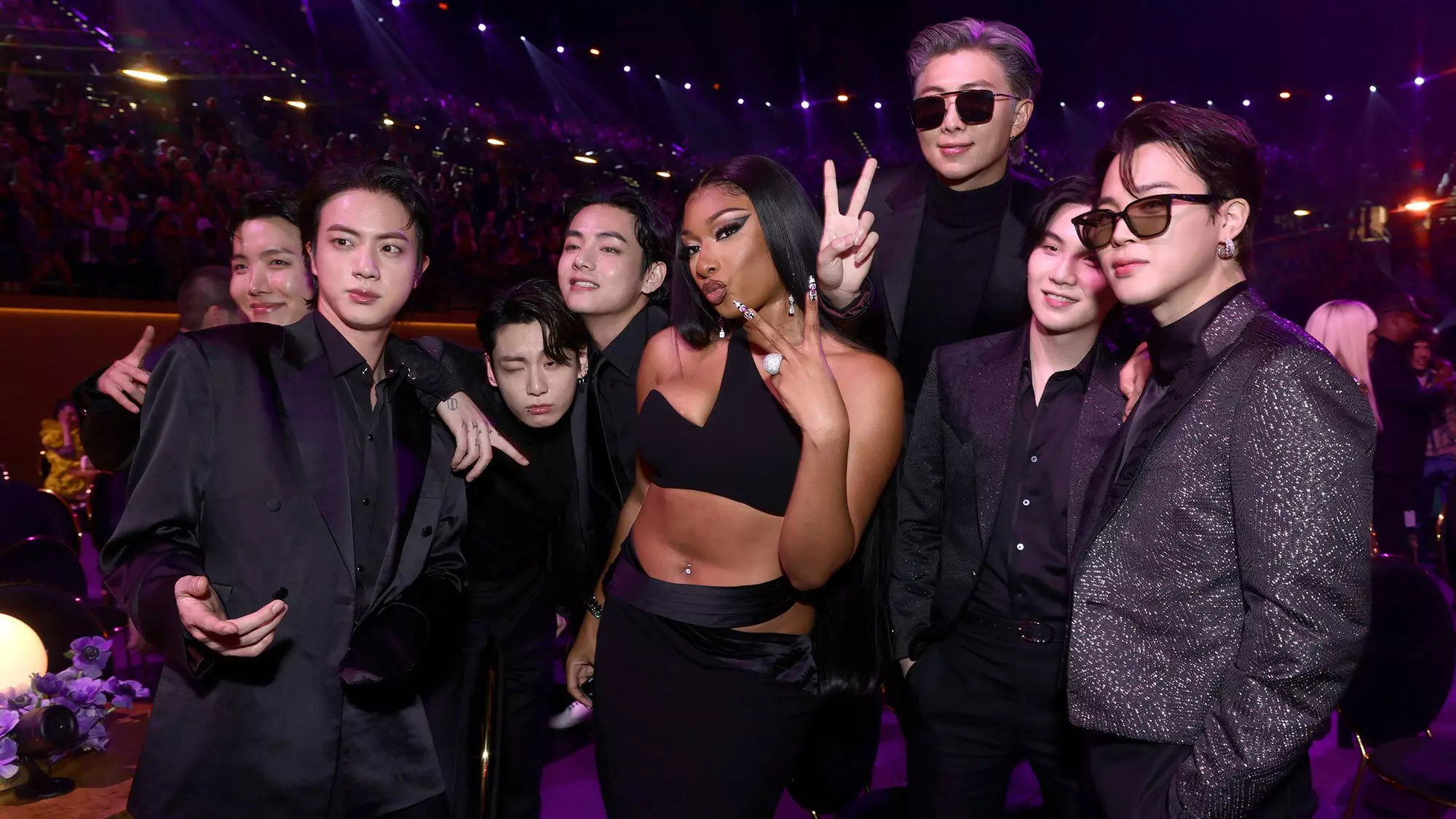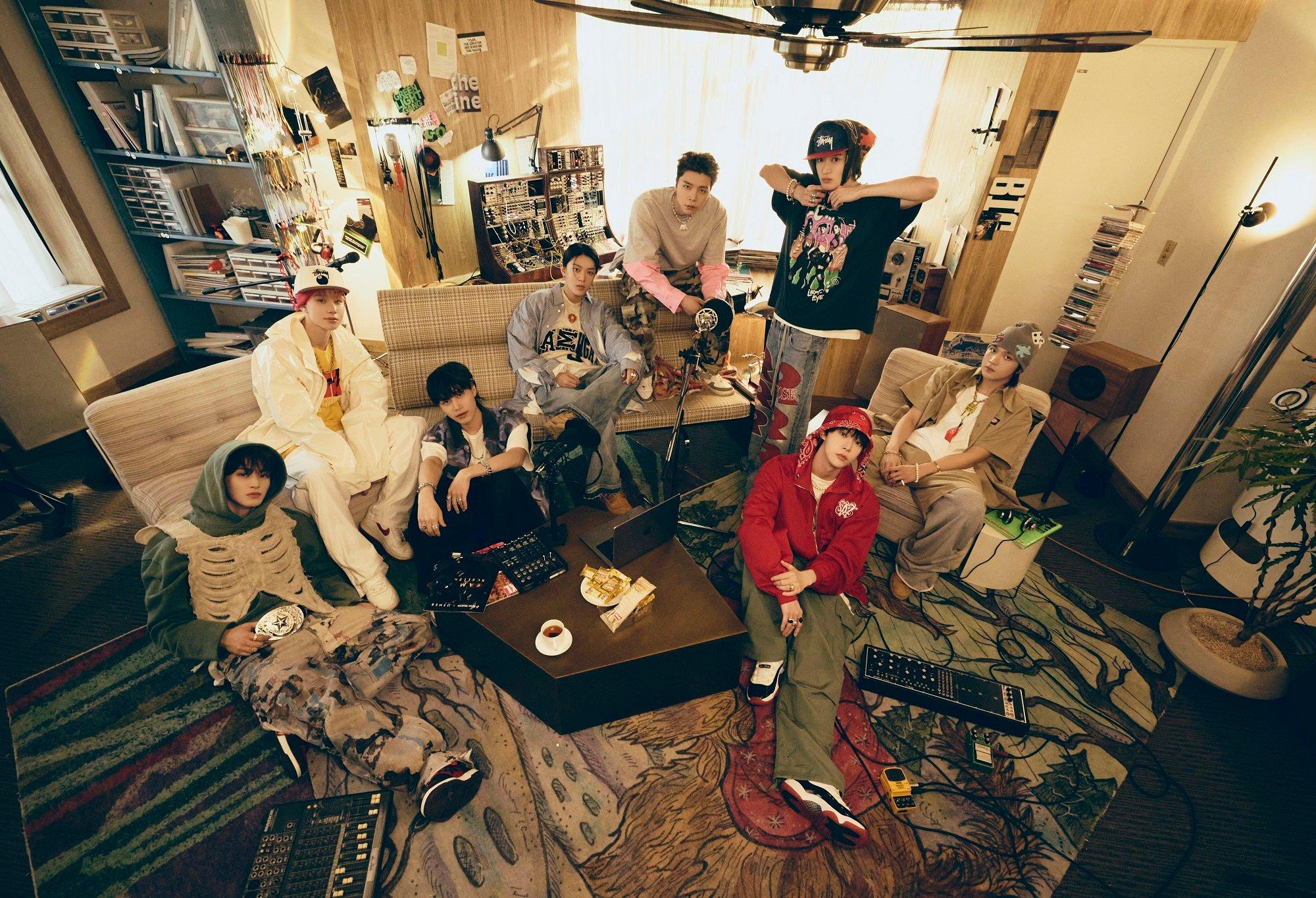Except for maybe billionaires, the pandemic wreaked havoc on most people’s lives. Korean-American R&B singer based in South Korea MRSHLL was no exception. Shows in Europe and his performance at SXSW were swapped for watching Netflix and eating take out. With concert money having dissipated, he relied on other jobs like participating in an online concert organized by a German artist and a writing gig to get him through the month. And just when he decided to release music, he was diagnosed with a herniated disk that put a stop to everything. Severely in pain and under heavy medication, he filmed the music video for "DO U" featuring the rapper Queen Wa$abii.
"There were very difficult times. At moments I worried about how I was gonna pay for rent next month. Then something would come at the last minute and then I was able to pay for rent and feed myself," MRSHLL told GRAMMY.com over a phone call recently about his struggles throughout the pandemic. "For some reason, by the grace of the big woman upstairs, I was able to survive 2020 and somehow I am able to survive 2021."
<style>.embed-container { position: relative; padding-bottom: 56.25%; height: 0; overflow: hidden; max-width: 100%; } .embed-container iframe, .embed-container object, .embed-container embed { position: absolute; top: 0; left: 0; width: 100%; height: 100%; }</style><div class='embed-container'><iframe src='https://www.youtube.com/embed/nuuilI3mEwM' frameborder='0' allowfullscreen></iframe></div>
Born Marshall Bang, MRSHLL’s journey began simply by chance. He had quit music because of a throat issue and was working as a hairstylist in New York. Until one day, a South Korean TV producer found one of his old singing YouTube videos. She had reached out and invited him to a singing competition show. Thinking he wouldn’t last long on the show given he could barely sing one song without his throat hurting, he hopped on a plane to South Korea the next day. At his arrival, he was immediately on camera, and what he thought would be a two-week visit ended up being a stay for the whole length of the show. Seven years later, he’s still going.
At the time of his musical debut in 2015, MRSHLL was lauded as South Korea’s first openly gay singer. Only one other performer, the K-pop singer Holland, has emerged since then. The lack of LGBTQIA+ visibility in pop music in South Korea is crystal clear—MRSHLL, Holland and pop singers like Harisu, the first trans woman entertainer in the country, are opening doors for more artists. And though South Korea’s views on the LGBTQIA+ community are slowly progressing, many would argue there is still a long way to go—the country still criminalizes sex between men in the military for one. More recently, an outbreak of coronavirus in Seoul connected to clubs frequented by LGBTQ+ people last year unveiled fervent homophobic sentiments. On the k-pop front, some artists in the idol industry have increasingly become more vocal about supporting LGBTQIA+ rights, though there has yet to be an openly queer member in a group.
Being an openly queer artist in Korea is still a radical act and not one many dares to commit. But for MRSHLL, who first publicly came out through an interview in 2015, it was important to be his authentic self. "For me, being queer every day isn’t scandalous. If anything, it’s just boring, it is what it is. It’s insane that it’s still this controversial thing," the "POSE" singer said. "It’s a bit of a lonely road since there are not many of us doing this openly yet. Until that happens, I’m going to keep churning out music and art and things that show the different aspects of who I am. Not just as a queer artist, but [as] an artist. In doing so it is queer art. It’s art made by a queer person."
True to his identity—transgressive, queer, and fabulous— his work reflects everything that makes MRSHLL himself. Last year’s "DO U," as the title suggests, is a celebration of unique individuality. "Starlight" is visually a luxe, hazy featuring big, puffy tulle and satin tops and lace applications on the face. "Deserve better" featuring CHAI highlights velvety runs and the rest of his vocal splendor. His genre-blending style lies somewhere in between the mix of his R&B vocals, house music and chill pop, and everything else around, above, and below that.
Merely two weeks after recovering from his herniated disk injury, MRSHLL spoke to GRAMMY.com from his home in South Korea about being a queer artist, LGBTQIA+ representation in k-pop, and his upcoming music.
This interview was edited and condensed for clarity.
<style>.embed-container { position: relative; padding-bottom: 56.25%; height: 0; overflow: hidden; max-width: 100%; } .embed-container iframe, .embed-container object, .embed-container embed { position: absolute; top: 0; left: 0; width: 100%; height: 100%; }</style><div class='embed-container'><iframe src='https://www.youtube.com/embed/_7Pyurts6cE' frameborder='0' allowfullscreen></iframe></div>
Happy Pride! How did you usually celebrate in Korea pre-pandemic?
They call it the Seoul Queer Festival here. It's all love and color, and people are all decked out in fabulous rainbow wear. I performed at the official pride after party two years ago and that was an incredible experience. There is something to be said for when you're performing for random people as opposed to performing for people in your community. People who are like minded individuals, that understand and know the experience and the journey. I think it’s just really special as a queer artist. I really enjoyed the experience, the support, the energy, the love that you feel. It's just so palpable and it’s super rad. I love my community.
What motivated you to pursue a music career in Korea as an openly gay/queer artist?
I don’t think I ever started off my journey thinking, "I’m gonna be an openly queer artist in Korea." That was never in the cards. When I got to Korea, I was like, "Okay, I guess the opportunity is here for me right now, let's see where this goes." I had some friends already in the music industry who really helped me get acclimated to the culture and things like that. And in terms of me starting my career in general, just out from the get go, I didn’t want me being queer to be anything "controversial." I didn’t want it to be something I was hiding or to become a scandal later on.
What has your experience been like? Especially now that your latest work has been very queer-presenting?
I love it. I am also someone who is also ever changing, ever growing and I believe that my music and my look keeps evolving. Our art evolves with us. All the different things that I have experienced in my life have played into what I create and what I make. I will be figuring out who I am and my identity for a long time because it changes as we grow and mature in life. I went through a mental health journey, first when I originally came out, and then when I came to Korea. Dealing with all the cultural differences and figuring out cultural cues and things as a Korean American navigating that space and navigating the music industry as a queer person.
Would you say you’re a k-pop act?
I feel like the k-pop umbrella is such a huge category. It seems like a lot of people put any Korean artist under the K-pop umbrella. I make pop music that has tinges of R&B and house music. I wouldn’t say I am not k-pop, but I don’t know if I would say that I am 100% k-pop. If you were talking about an artist who does Korean popular music, then sure, that is me. You can categorize me anyway you want, I will be making music the way I want no matter what. People can put me under the k-pop umbrella if they want and I am okay with that. And if they don’t want to, I am okay with that too.
In the past few years, some major k-pop idols have increasingly become more vocal about supporting the LGBTQ+ community, and some have included queer people in their music videos. What are your thoughts on this?
I say the more the merrier. Of course, I would love to see more openly queer artist in general. I love seeing more representation with drag queens or dancers who are more queer presenting or more sexually fluid presenting. I also am ever so slightly wary because I don’t want it to become a shtick, a trendy gimmick. I am not a gimmick. Being LGBTQIA+ is not a gimmick, this is real life, this is who we are. You can’t use our culture and our people for your own commercial gain. Sometimes it can be trendy and sometimes it can raise awareness for us. I think it depends on the situation. As of right now because it’s so devoid of representation in general, I am happy to see these k-pop idols are hiring these femme presenting dancers and drag queens, and doing it so far in a way that is powerful—they are normalizing it in a way. I want them to actually support the LGBTQIA rights aside from visuals. Things like tagging their dancers and showing up to pride events to show support, being more present where it counts and being prepared for the risk that comes with crossing the "line." The friends I have in the idol world have always been supportive of me.
You and Holland are the main representatives of the LGBTQ+ community within the music industry in South Korea. How do you feel about that?
There should absolutely be more. I want to see openly lesbian artists and sexually fluid artists and non-binary artists. I want to see all of it because there's just so few of us. I know they are out there. But, you know, we are waiting.
You’re working on your first full-length album and are releasing singles leading up to it. What can you tell me about that?
I have a dance single coming out at the end of next month and the song is called "Show Me What You Got." It’s my first all in Korean release this year. There is a music video for it. This will be my first time doing drag makeup. Two drag queens did my makeup for this music video. It was almost an entirely queer production. I was super proud of it. It will be my last dancey single before my actual album. My album will hopefully be out before the end of this year. I don’t want to rush it and make sure everything is perfect for everyone to hear. There will also be some guest features that I am super excited to share. I am very, very excited.
<style>.embed-container { position: relative; padding-bottom: 56.25%; height: 0; overflow: hidden; max-width: 100%; } .embed-container iframe, .embed-container object, .embed-container embed { position: absolute; top: 0; left: 0; width: 100%; height: 100%; }</style><div class='embed-container'><iframe src='https://www.youtube.com/embed/VyiLfWPBEic' frameborder='0' allowfullscreen></iframe></div>
And now, I’m also very excited. And how cool that you have drag moms now!
I know! I love and respect drag queens so much. I feel like they are kinda otherworldly, just almost like the future of people. They are like love come to life. I feel like I can get so much inspiration from drag culture. The fashion, the performance, I think they are kind of like angels, to be honest with you. I love them.
You’ve said your single "Metamorphosis" was showing the fully realized version of yourself. What do you mean by that?
When I was younger, I didn’t know anything and I was unsure of myself and who I was. And like "Metamorphosis," I grew into a more realized version of myself. I know I am not at 100% yet because I always want to leave room for growth. I am becoming more of who I am. It was a big change for me not only for musical direction but for visuals as well. And so I think everyone will see what that means in my first solo album.
Last year, you released multiple singles, almost one per month. What is that experience like as an independent artist?
Everything got canceled [last year] because of the pandemic. I had a few months where I was super sad and super down. After about 3 months, I was like, "Okay, you can’t let 2020 go to waste, you have to do something. Let me just release music. So I have things to perform once the world opens again." So I started with "I Don’t Wanna Know," which was a very queer collaboration with Vardaan Arora who is an Indian-American artist based in the States. I just started pumping out songs starting in the summer, I was creating visuals and I was just grinding. I am fortunate enough to have people who wanted to pump out creative stuff—no matter if we were on a bare bones budget or no budget at all. Being an independent musician is not easy, especially in these times. It was a difficult year, but it gave me an outlet to express myself.
What’s something you’d wish people outside of Korea, or even the k-pop fandom, would know about the Korean R&B scene?
There is actually not too much out there. I feel like, in a way, there is an R&B revolution that is gonna happen. I’m excited to see more of the Korean R&B scene grow. There are a lot of upcoming artists that I am super excited to see expand and grow, and get more recognition.
What are some of your next projects?
"Show Me What You Got," coming at the end of July. There is this documentary thing coming out where I partnered with this brand coming soon. I can’t say who it is yet. On top of the first full length album, I am also working on my first all English EP, which should come out next year sometime.
K-Pop Group SEVENTEEN Talk New Album 'Your Choice,' Love And Growing Together

